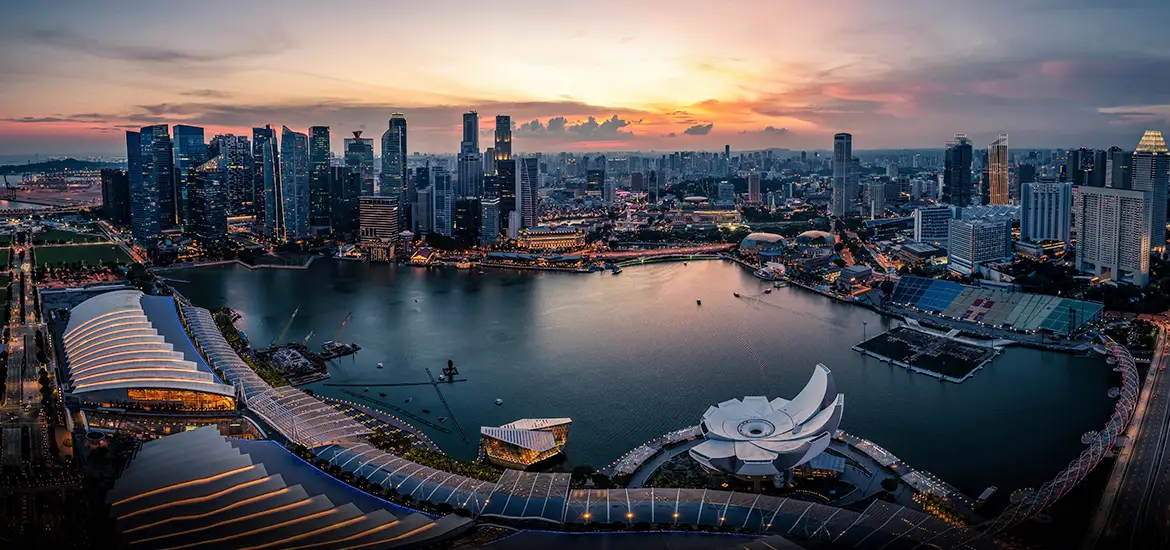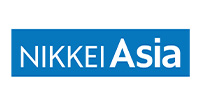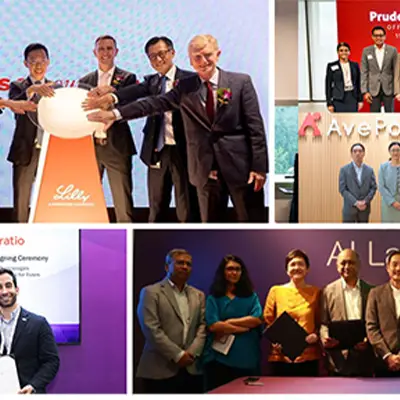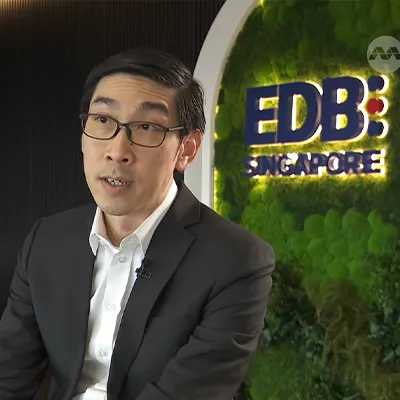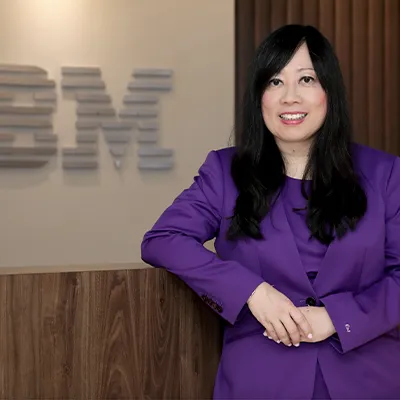Investors say the industry, which tends to remain under the radar due to more complex technology and expertise, is gaining importance amid the U.S.-China trade war and supply chain shifts. Governments are seizing its potential, most notably proven with the development of mRNA vaccines that were highly effective against COVID-19.
"Singapore also sees the need to become more self-sufficient in certain areas, like chipmaking, as a matter of national security," said Takeshi Ebihara, founding general partner of Singapore-based Rebright Partners. "With its neutral appeal, its efforts are starting to bear fruit."
Over the last decade, Singapore has grown into one of the largest startup clusters in Asia, home to around 4,500 young ventures and over 400 venture capital (VC) firms, with a scientific research base of nearly 40,000 researchers, scientists and engineers, according to Startup Genome. The country's strong talent base, convenient location, government support and favorable tax policies have been credited for its ascent.
Helping drive the growth have been events like this week's Singapore Week of Innovation and Technology (SWITCH), which last year attracted 15,000 participants. Tuesday's (22 Oct, 2024) sessions include the Research, Innovation and Enterprise (RIE) Deep Tech Day, where researchers and industry players will discuss ways to step up the growing ecosystem.
"We see Singapore's ecosystem as a transit center," said Edmond Wong, partner at iGlobe Partners, echoing how the country grew as an aviation and shipping hub.
Southeast Asia has been known for consumer tech like e-commerce, ride-hailing and payments, all of which have been affected by the funding downturn. For the January-to-June period, regional equity funding totaled $2.29 billion, a fall of 36% from the same period a year ago, according to DealStreetAsia, and sinking to its lowest level in more than five years.
This was down 83% from the $13.85 billion peak the region amassed in the second half of 2021 at the height of the pandemic bubble when global investors from SoftBank Group's Vision Fund to Tiger Global Management poured in billions.
For deep tech startups, however, fundraising was tough even when the broader market was hot. "Our initial fundraising was bad, very bad," said Pham Quang Cuong, CEO of Eureka Robotics, which he spun off in 2018 from his research at the Nanyang Technological University (NTU), one of Singapore's top public universities.
Pham said he spoke to more than 100 local investors but to no avail. "Most importantly, they didn't have any success stories and exits. So for most VCs, deep tech is something very foreign," Pham said. In the end, he tapped overseas investors like the University of Tokyo Edge Capital (UTEC), one of Japan's leading deep tech VCs. Today, the startup counts some of Japan's largest manufacturers like Toyota Motor as its clients.
Kiran Mysore, principal at UTEC, said the climate is slowly starting to change, in part because traditional VCs are moving in. "Deep tech companies are going after evergreen problems," he said. "Interest rate changes or a slowdown in the economy are not going to affect the big social challenges these companies are tackling."
According to NTUitive, the innovation and enterprise arm of NTU, the university has spun off more than 70 startups over the last decade. The aggregate value of its portfolio companies, based on their last round funding, grew to 1.27 billion Singapore dollars ($960 million) as of March, up 94 times from just SG$13.5 million in 2013. The university, which has minted about 10 startups every year, is now seeking to more than double that number in the coming years.
"Internet startups are solving an inefficiency problem, creating a platform to bridge supply and demand," said NTUitive CEO David Toh. "Whereas with deep tech, you are creating a completely new industry off of basic science. That is its promise."
While Singapore has a strong image as a financial hub, the country is no stranger to manufacturing, which accounts for about 20% of its gross domestic product. In particular, Singapore has been an integral part of the semiconductor supply chain for decades and today accounts for about 10% of all chips produced worldwide. For startups, the city-state's reputation as a research hub also helps.
Last year, the largest deep tech investment deal in Singapore was $139 million raised by local semiconductor firm Silicon Box, as part of a $200 million funding round. The company -- focused on advanced packaging -- announced in March plans to set up a 3.2 billion euro ($3.45 billion) chip plant in Italy, after it opened its $2 billion foundry in Singapore last year.
Late-stage investors are also moving early to support deep tech startups. In September last year, Singaporean state investor Temasek Holdings partnered with NTU and the National University of Singapore to jointly invest a total of SG$75 million to help companies spin off their research projects.
On Oct. 21, Deputy Prime Minister Heng Swee Keat, who chairs the National Research Foundation under the Prime Minister's Office, announced that A*STAR will be joining the collaboration to speed up commercializing deep tech.
The latest partnership is in line with the Singapore government's most substantive research and development budget in the nation's history, committing to invest 1% of its GDP through 2025, totaling around SG$25 billion.
"Deep tech has the potential to transform industries and address shared global challenges like climate change and public health," Heng said in a social media post after attending the new office opening of Xora Innovation, Temasek's deep tech arm set up in 2019.
"But it is a tough niche that requires different players from across the research, innovation and enterprise landscape to work together," Heng added.
Among Xora's dozen portfolio companies is Cosmos Innovation, a Singaporean startup founded by two former A*STAR researchers and Stanford University graduates. The company -- which also counts ex-Google CEO Eric Schmidt's VC firm, Innovation Endeavors, among its investors -- is racing against myriad rivals utilizing AI to develop the ideal design for the most efficient solar cells and semiconductors.
Cosmos CEO Vijay Chandrasekhar sees this global race as a chance for Singapore to strengthen its role as a chip hub and nurture local innovation.
"A lot of Singapore's big successes early on were attracting large companies like GlobalFoundries, Micron Technology and Applied Materials," Chandrasekhar said. "Now is the opportunity to build homegrown companies."
